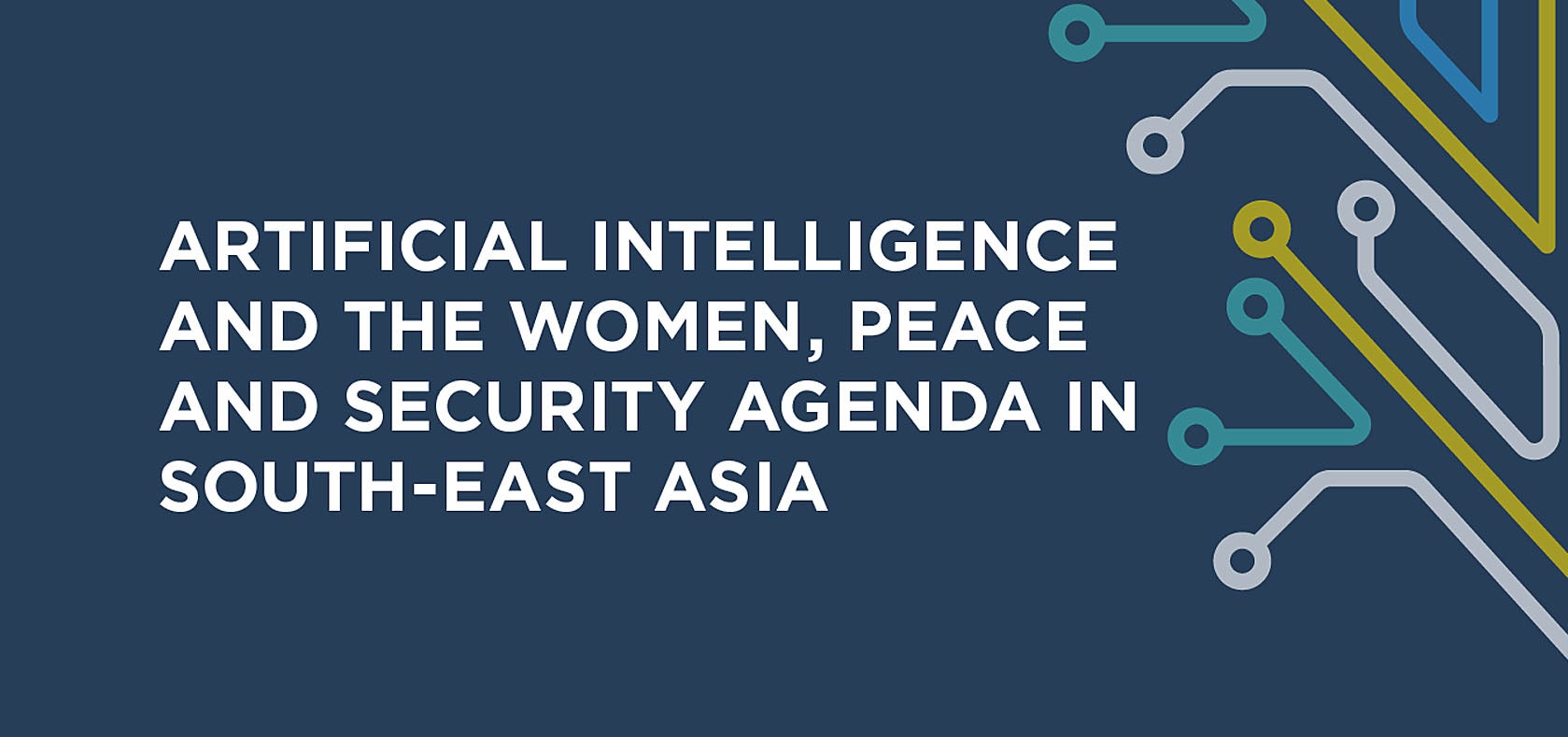Artificial Intelligence and the Women, Peace and Security Agenda in South-East Asia

About this research
The global mainstreaming of artificial intelligence technologies (AI) has had an important impact on the security of women.
This research conducted by UN Women and the UN University Institute in Macau (UNU Macau) examines the opportunities and risks of AI from a women, peace and security (WPS) lens in South-East Asia, with a focus on four types of gender biases in AI which will need to be addressed before the region can fully benefit from new technological developments: discrimination, stereotyping, exclusion and insecurity.
Its objective is to inform governments, policy makers, international organizations, civil society organisations and the private sector interested in AI in the region on the risks and opportunities which these technologies bear, addressing an important gap in understanding on this issue. Given existing lacunes in AI and the WPS agenda, this research also contributes to the global conversation on ethics and norms.
Findings and recommendations
The relationship between AI and WPS was categorised according to the three types of AI and its applications: AI for peace, neutral AI and AI for conflict. Our research finds that across these categories, there are favourable and unfavourable effects of AI for gender-responsive peace and women’s agency in peace efforts.
Our research finds two dimensions to improving the dynamics of AI and the WPS agenda in the region. The first is mitigating the risks of AI systems to advancing the WPS agenda, especially on social media, but also on other tools, such as chatbots and mobile applications. The second is fostering the development of AI tools built explicitly to support gender-responsive peace in line with WPS commitments.
There are six recommendations:
- Mainstream WPS considerations in national, regional and global dialogues on AI governance, and vice versa.
- Support the design of inclusive, conflict-sensitive and gender-responsive AI by ensuring that women have equal opportunities to lead and meaningfully participate in said processes.
- Map and conduct gender- and human rights impact assessments of AI systems and draft policies and legislation, including those relevant to the advancement of peace and security.
- Raise awareness and strengthen capacities of key stakeholders on risks and opportunities of AI tools for gender-responsive conflict prevention and peace efforts.
- Leverage AI for hate-speech monitoring, fact-checking and countering disinformation on social media, accounting for the use of misogynistic and otherwise harmful gendered narratives.
- Strengthen accountability mechanisms for social media companies by enhancing users’ agency in choice of providers and platforms, with specific attention to inclusive and rights-based solutions.
This research was made possible with the generous support of the Government of Australia, under the Cyber and Critical Tech Cooperation Program, and the Government of the Republic of Korea as part of the UN Women project Women, Peace and Cybersecurity: Promoting Women’s Peace and Security in the Digital World.
See also:
- [Joint press release] New UN research reveals impact of AI and cybersecurity on women, peace and security in South-East Asia
Citation:
Stuart, Jaimee. (2024). Cybersecurity threats, vulnerabilities and resilience among women human rights defenders and civil society in South-East Asia. UN Women Regional Office of Asia and the Pacific and United Nations University Macau. Bangkok, Thailand and Macau (SAR), China. (https://doi.org/10.17605/OSF.IO/H38WZ)